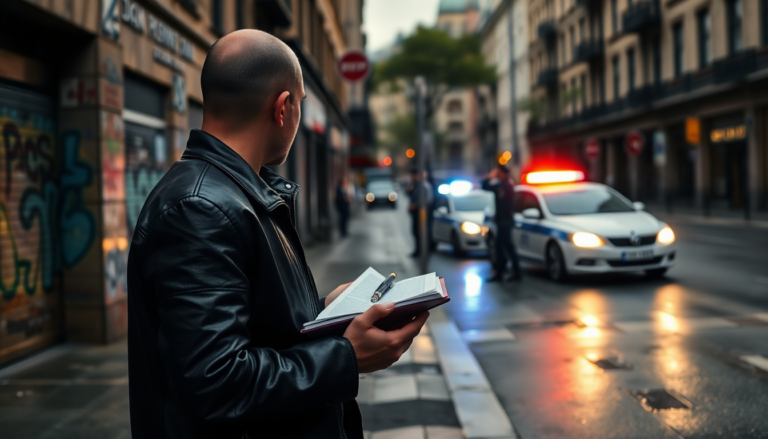Argomenti trattati
Urban crime reporting isn’t just a job; it’s a vital part of journalism that shines a light on the intricacies of crime and safety in our cities. Journalists in this field face unique hurdles, requiring a mix of sharp observation skills, ethical responsibility, and clear communication. In this article, we’ll explore the methodologies urban crime reporters use, the ethical dilemmas they encounter, and the significant impact their work has on society.
The Role of Urban Crime Journalists
Think of urban crime journalists as the eyes and ears of the public. They provide crucial information about criminal activities, law enforcement responses, and the broader implications these events have on community safety. Their main job? To report the facts as they happen, making sure the audience receives accurate and timely updates. This role demands a solid understanding of local laws, police procedures, and the social issues that often intersect with crime.
In the fast-paced world of urban crime reporting, these journalists focus on the 5Ws: Who, What, When, Where, and Why. This structured approach not only helps craft a compelling narrative but also ensures the audience stays well-informed. For example, if there’s a breaking news story about a robbery, immediate details about the location, time of the incident, the nature of the crime, and any information about the suspects are essential. How would you feel if you heard about a crime in your neighborhood and didn’t know the specifics?
Challenges Faced in Urban Crime Reporting
Despite the importance of their work, urban crime reporters often grapple with significant challenges. One pressing issue is the risk of misinformation. In the rush to deliver breaking news, journalists must be cautious about spreading unverified information. This calls for a rigorous vetting process, often relying on trusted sources like law enforcement officials, eyewitness accounts, and official statements. Can you imagine the chaos that could ensue from a single erroneous report?
Additionally, the emotional toll of covering violent crimes can be heavy. Journalists must strike a delicate balance between reporting on tragic events and respecting the privacy of victims and their families. Ethical considerations are vital; reporters must be aware of how their coverage may impact those involved in the stories they tell. How do they cope with that weight?
The Impact of Urban Crime Reporting on Communities
The influence of urban crime reporting goes far beyond simply sharing information. Effective journalism can spark community awareness and inspire civic engagement. When journalists bring attention to specific issues, like gang violence or drug-related crimes, it often encourages discussions among community members and leaders, leading to collective action aimed at addressing those concerns. Have you ever joined a community discussion after reading a compelling news article?
Moreover, urban crime reporting plays a critical role in holding authorities accountable. By scrutinizing law enforcement practices and reporting on systemic issues, journalists advocate for transparency and justice. This watchdog function is essential for maintaining a balance between public safety and civil rights. Isn’t it reassuring to know there are people watching out for the community?
In conclusion, urban crime reporters are indispensable contributors to society, charged with the responsibility of informing the public while navigating a complex landscape of ethical dilemmas and emotional challenges. Their work shapes perceptions of crime and safety while fostering community engagement and accountability. How do you think urban crime reporting will evolve in the future?

